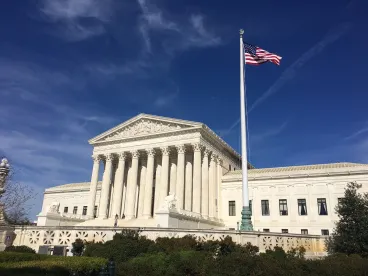The question of whether the False Claims Act (FCA) requires a showing of objective falsity will continue to divide the circuit courts following the U.S. Supreme Court’s decision not to address the issue.
To establish liability under the FCA, which prohibits the defrauding of the government, an individual must demonstrate actual knowledge that the claim in question was false or deliberate ignorance or reckless disregard of the truth or falsity of the claim.
The circuit courts are split as to whether or not “actual knowledge” under the FCA requires that an allegedly false claim be based on objectively verifiable facts.
In United States v. AseraCare, Inc., 938 F.3d 1278 (11th Cir. 2019), the Eleventh Circuit held that falsity under the FCA, in fact, requires objectively verifiable proof that the claim was false, and that subjective opinions of physicians, without more, are insufficient to establish the falsity of a claim under the FCA.
The Eleventh Circuit’s rationale was rejected by both the Third Circuit and the Ninth Circuit, both of which did not require objective proof of falsity. United States ex rel. Druding v. Druding, 952 F.3d 89 (3d Cir. 2020), the Third Circuit held that a claim for reimbursement for Medicare Hospice Benefit could be considered “false” under the FCA on medical-expert testimony that accompanying patient certifications did not support patients’ prognoses of terminal illness. Similarly, in Winter ex rel. United States v. Gardens Reg’l Hosp. & Med. Ctr., Inc., 953 F.3d 1108 (9th Cir. 2020), the Ninth Circuit held that a false certification of medical necessity could be sufficient to give rise to FCA liability, and a false certification of medical necessity could be material under the FCA.
On February 22, 2021, the U.S. Supreme Court declined to grant certiorari on whether objectively verifiable facts are required to establish liability under the FCA, thereby leaving the ongoing circuit split intact on the issue of “objective falsity.”
While healthcare providers, government contractors, and other organizations have long been aware of the factual specificity and complexity often underlying FCA claims, the Supreme Court’s denial to decide the issue of “objective falsity” is an important development for organizations engaging in activities covered by the FCA. Employers and other organizations must remain educated and vigilant and understand that they may continue to face varying levels of exposure risk to liability under the FCA, depending upon not only the specific circumstances surrounding the allegedly false claim in question, but also the jurisdiction where the FCA case is brought.




 />i
/>i
